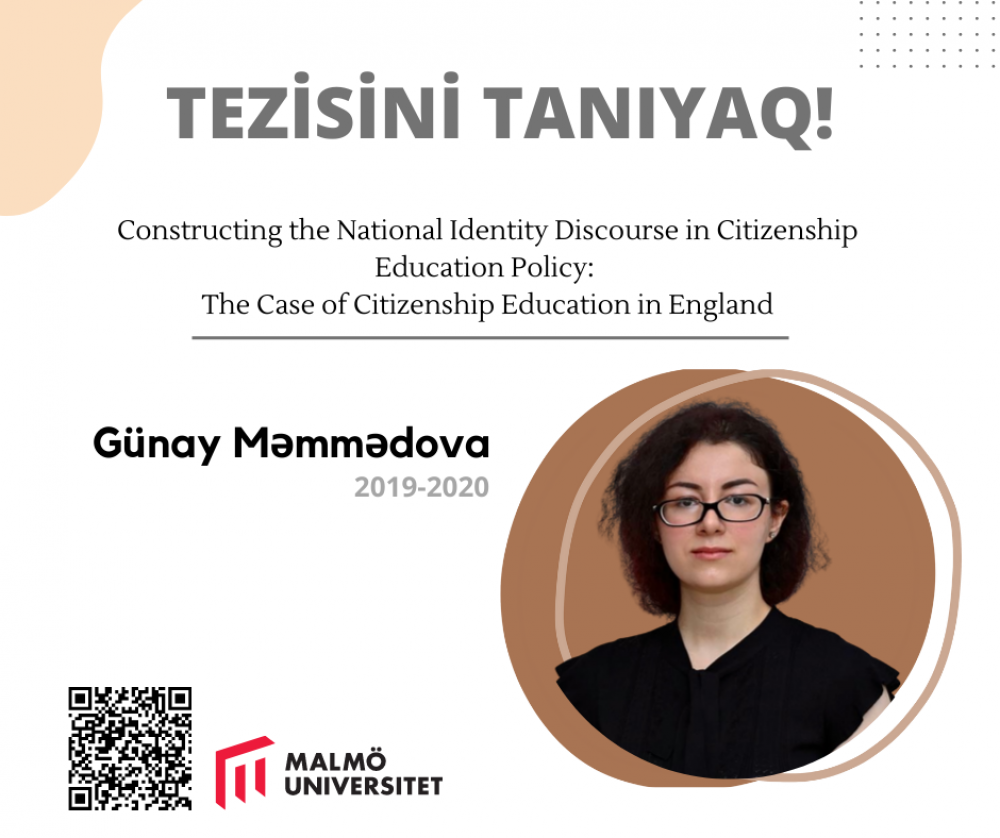We are introducing the “Tezisini Tanıyaq” project, which aims to present our graduates’ research papers including bachelor’s, master’s, PhD, or any research articles. Using this approach, we hope to increase the accessibility of research topics, enhance the usability of research results, and take some initiatives to use if necessary.
Note: If you also want to introduce your thesis, please use the following link for registration. https://forms.gle/fkUEDwHWRsVD8CEh7
Well, we start with Gunay Mammadova who studied at Malmö University between 2019/2020.
Research topic: Constructing the National Identity Discourse in Citizenship Education Policy: The Case of Citizenship Education in England
The topic examines – the governmental construction of national identity through its citizenship education policy in England, the country with heightened tensions in diversity and identity re-construction aligning with its mandatory citizenship classes since 2002. Theoretically framing the study on the Foucauldian post-structuralism, the thesis utilises Foucauldian-influenced ‘What is the problem represented to be?’ (WPR) a method by Bacchi. Conducting qualitative research methods, the study analyses the current National Curriculum in England with the explanatory and foundational state documents of the Crick and Ajegbo Reports.
The thesis identifies – that the government primarily aims to re-construct the inclusive and integrative national identity based on the acknowledgement of multiple identities and a plurality of nations in the citizenship education curriculum in England. The study, however, also reveals that the English citizenship education policy implicitly presents a few assimilationist elements in the national identity discourse through exclusion and unrepresentativeness of the ethnic and racial identities, hierarchical establishment between native English and minorities, and the division of ‘whites’ and ‘non-whites’. Comparatively examining the documents, the thesis concludes that the government has a powerful position in socially and politically re-constructing the discourses, concepts, and meanings over time.
Such an informative paper is enjoyable to read!
Well done, Gunay.



